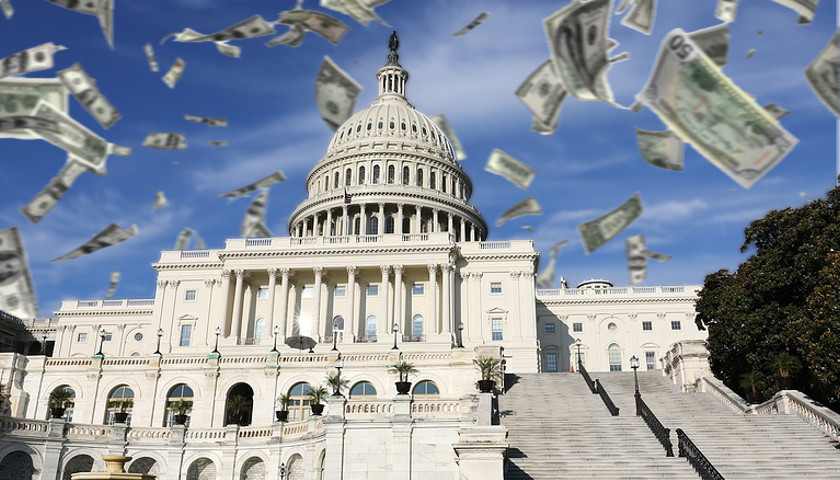by Bethany Blankley
Congress is preparing another coronavirus relief package, President Donald Trump said, which includes another direct cash payment to Americans.
“Yeah, we are … We will be doing another stimulus package. It’ll be very good, it’ll be very generous,” Trump told a Scripps reporter Monday. “I think over the next, I think it’s going to be bi-partisan, I think it’s going to be over the couple of weeks, probably.”
The first round of stimulus checks went to qualifying Americans in April in the form of direct cash payments of $1,200 per individual adult, $2,400 for married couples, and $500 for each child under the age of 17. The $2.2 trillion CARES Act passed in March included other measures to offset financial losses caused by state economic shutdowns due to the president declaring a national emergency over the coronavirus. It also added $600 a week in unemployment pay for workers shuttered because of coronavirus restrictions.
The $3 trillion House bill passed last month, which included numerous regulations and federal subsidies unrelated to the coronavirus, was dead on arrival, Republican Senate Majority Leader Mitch McConnell said.
An alternative proposal put forward by Ways and Means Leader Kevin Brady, R-Texas, the “Reopening America by Supporting Workers and Businesses Act of 2020,” would transform unemployment benefits into a back-to-work bonus by allowing workers to keep up to two weeks of additional federal unemployment benefits after they accept a job offer.
“Concerns have been raised that the additional $600/week in [Unemployment Insurance] benefits could mean some workers receive more on unemployment than their paycheck, creating a disincentive to work,” Brady said in a statement. “As more businesses re-open across the country, employers shouldn’t have to compete with unemployment to bring workers back.”
Brady’s proposal also includes the same direct cash payment as the CARES Act of $1,200 for individuals and $2,400 for families.
“For us to rebuild our economy, we must make sure Americans can get back to work in a safe, healthy environment,” Brady said. “Unless we can reconnect these workers with these Main Street businesses soon, that business may no longer be there. This proposal is an important part in preventing a prolonged recession.”
Democratic U.S. Sens. Edward J. Markey, Kamala Harris and Bernie Sanders cosponsored the Monthly Economic Crisis Support Act, which would provide recurring monthly direct cash payments to everyone in the U.S. who earns less than $120,000 a year.
“Simply put, $1,200 was not nearly enough to keep families on their feet during this crisis,” Markey wrote in a column published by MSN. “A single check is not sufficient for the millions of households that are struggling with the health and economic crisis we face. Americans need more than just one payment.”
Markey’s bill authorizes the federal government to send nearly $600 billion worth of payments to every household in the U.S. in the form of a direct cash payment of $2,000 per month to individuals with an income below $120,000 for at least three months after the coronavirus shutdown ends. It also provides $2,000 for each child up to a total of three children, regardless of their age. Similar to the HEROES Act passed by Congress last month, every U.S. resident, regardless of citizenship status, would receive a payment, according to Markey’s bill.
Markey argues that providing recurring monthly payments “is the most direct and efficient mechanism for delivering economic relief to those most vulnerable in this crisis, particularly low-income families, immigrant communities, and our gig and service workers.”
Congress is expected to debate the second wave of stimulus bills in July. If approved by the end of July, checks could be sent out in late August.
“We don’t want to rush into that because we want to be both careful at this point in seeing how the money is in the economy,” U.S. Treasury Secretary Steven Mnuchin recently told the U.S. Senate Committee on Small Business and Entrepreneurship.
“A lot of the money is still not in it,” he said. Roughly $130 billion allocated through the Paycheck Protection Program is unclaimed and nearly 35 million stimulus checks haven’t reached their intended recipients.
– – –
Bethany Blankley is a contributor to The Center Square.




